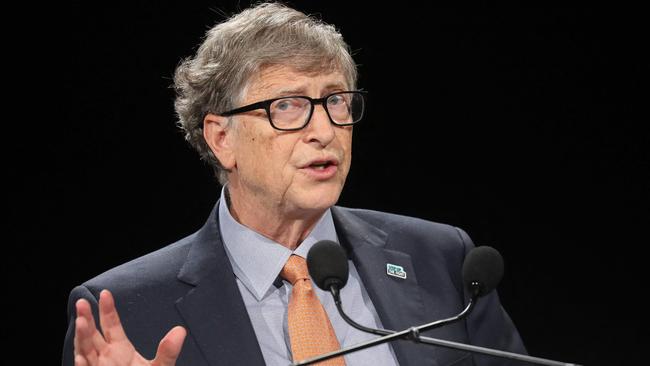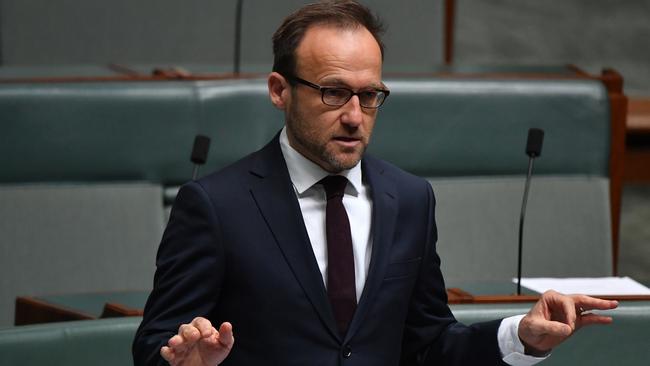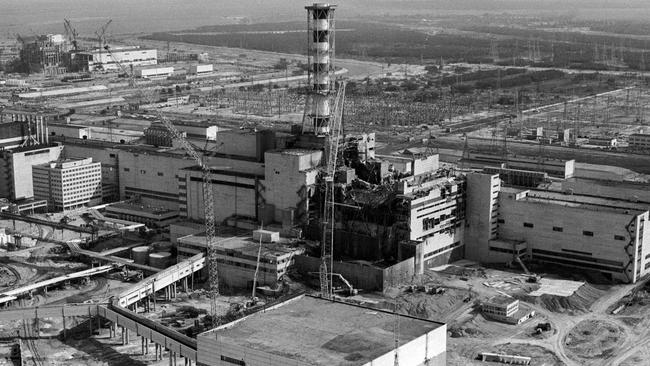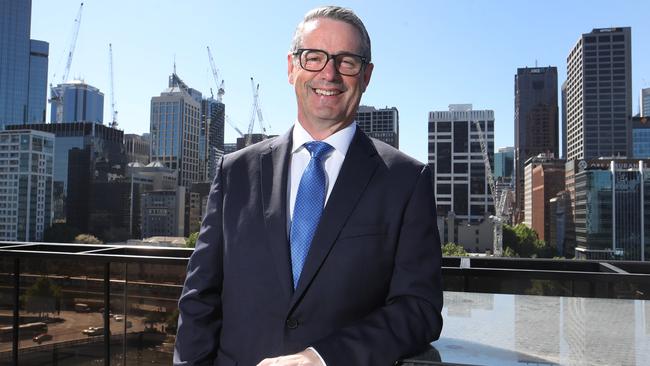Tim Blair: Crazy supersititions - and Greens - stopping us on nuclear power
Nuclear power is safe and clean, Australian uranium is abundant and we’re only held back by crazy superstitions that should have been abandoned decades ago, writes Tim Blair.
Opinion
Don't miss out on the headlines from Opinion. Followed categories will be added to My News.
Every culture has its own peculiar superstitions. In Japan, for example, trimming your fingernails after dark is said to hasten premature death.
The Spanish fear Tuesday the 13th. For Italians, their day of dread is Friday the 17th.
Ancient African tribes so reviled children born with teeth that those unfortunate infants were often put to death.
Brazilians avoid pointing at the stars at night because that will cause warts to grow on their fingers. Russians won’t whistle indoors for fear of going broke.
There are others. For all I know, it’s considered a portent of ill-fortune in Glasgow if you deliver an uneven number of head butts.

Stupid foreigners, right? But we in Australia can’t talk. Here, we’re deathly afraid of an energy source proven to be among the safest of them all.
We’re scared of nuclear power.
This fear has absolutely nothing to do with any logic or reason. It is purely superstitious. No matter how many studies find otherwise, and no matter how many decades of evidence accumulates, we still believe nuclear power is horrifyingly dangerous.
“Nuclear has actually been safer than any other source of [power] generation,” Microsoft billionaire and – not unimportantly – climate change wonk Bill Gates told an interviewer earlier this year.
“You know, coal plants, coal particulate, natural gas pipelines blowing up. The deaths per unit of power on these other approaches are far higher.”
Nuclear is far more compact, too, than certain stupid energy sources.

A recent analysis determined that “wind farms require up to 360 times as much land area to produce the same amount of electricity as a nuclear energy facility … solar photovoltaic facilities require up to 75 times the land area”.
If Australia went nuclear, we’d clear land space and produce more power at the same time. Sounds like a good deal, but even the idea of nuclear submarines turns many of us into the equivalent of wart-phobic Brazilian star dodgers.
“This dangerous nuclear submarines move puts floating Chernobyls in the heart of Australia’s cities,” Greens leader Adam Bandt wailed on social media following last week’s historic AUKUS announcement.
“It makes Australia less safe, increases the risk of conflict in our region and puts us in the firing line.
“Greens will fight this tooth and nail.”
Tooth and nail, you say? Don’t tell the Japanese or any African tribesmen.
The likes of Bandt (and many on Labor’s left) believe Chernobyl is the ultimate argument against nuclear power. In fact, Chernobyl is an argument against Soviet-level collectivist incompetence.

The Soviets couldn’t run a safe airline. State airline Aeroflot’s Soviet-era record was so bad that many crashes were not reported. Even when the USSR began to release some crash data in the late 1980s, it still declined to reveal statistics allowing comparison of accident and fatality rates to those of other nations.
The Soviets couldn’t build cars. The best and most reliable Soviet car was basically Italian. The USSR bought licencing rights for Fiat’s 124 model in 1970 and produced millions of the things.
And the Soviets couldn’t construct buildings capable of remaining upright. “Only now are cities throughout the former Soviet Union learning to cope with the legacy of mass-produced Soviet architecture,” the Christian Science Monitor reported in 1995.
“In some areas they are visibly disintegrating – without an earthquake to accelerate the process.”
Is it any surprise, then, that the Soviets couldn’t keep a nuclear reactor under control?
Other historic incidents also fuel Australia’s nuclear superstition. In 2011, Labor’s then-Communications Minister Stephen Conroy wept about the Gillard government’s plan to sell uranium to India.

Conroy, you see, had heard family stories about a fire at Britain’s Windscale nuclear plant that released Iodine-131 into the atmosphere.
“My family remembers when they came and took away all the milk for months because you couldn’t drink it,” Conroy sobbed.
He was literally crying over spilt milk. Three points: This happened in 1957, six years before Conroy was born. Milk was withdrawn from sale as a safety precaution for just one month.
And nobody died.
But go ahead and have a big old cry about it anyway, because it involves nuclear power.
There are signs, however, that – just as African tribes eventually stopped snuffing kids because of early dental development – some on the left are coming around to nukes.
Consider several responses to Adam Bandt’s social media panic attack.
“Mate, I’m a raging lefty but you used that ‘floating Chernobyls’ line 4-5 times in your ABC Breakfast interview and it makes you sound ludicrously hyperbolic,” wrote one correspondent.
“This is just embarrassing,” wrote another.

“American nuclear submarine technology is seen as the safest out of all nuclear energy systems.”
“I agree with the Greens on a number of issues but your antinuclear stance is outdated, stems from unfounded fear and detrimental to the fight against climate change,” declared a third.
“Nuclear energy can provide carbon free baseload energy to the grid to support renewables.”
True believers among the Greens will never alter their nuclear opposition, of course. The only fossil fuel alternatives they support either don’t work or haven’t been invented.
All in all, their environmental hypocrisy is perfectly summarised by my Tennessee law professor friend and columnist Glenn Reynolds.
“If you care about the environment, you support nuclear power,” Glenn wrote last year. “If you don’t support nuclear power, you’re just a garbage person who hates civilisation.”
You’re also as profoundly superstitious as any Japanese waiting until daybreak to trim those nails. But that’s already been established.





